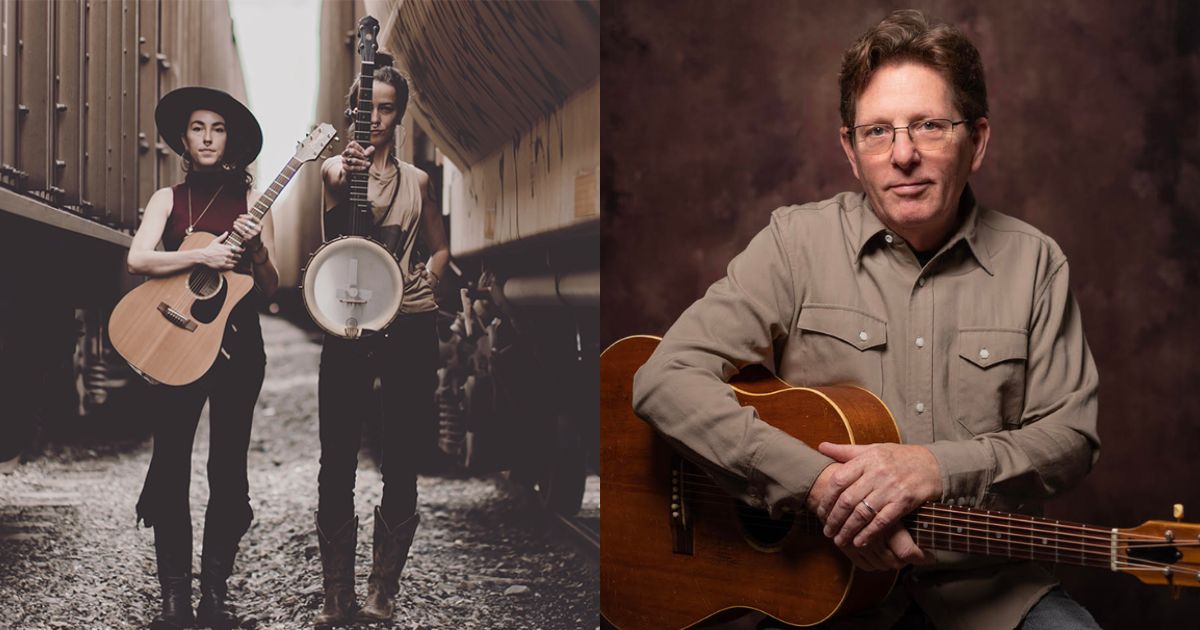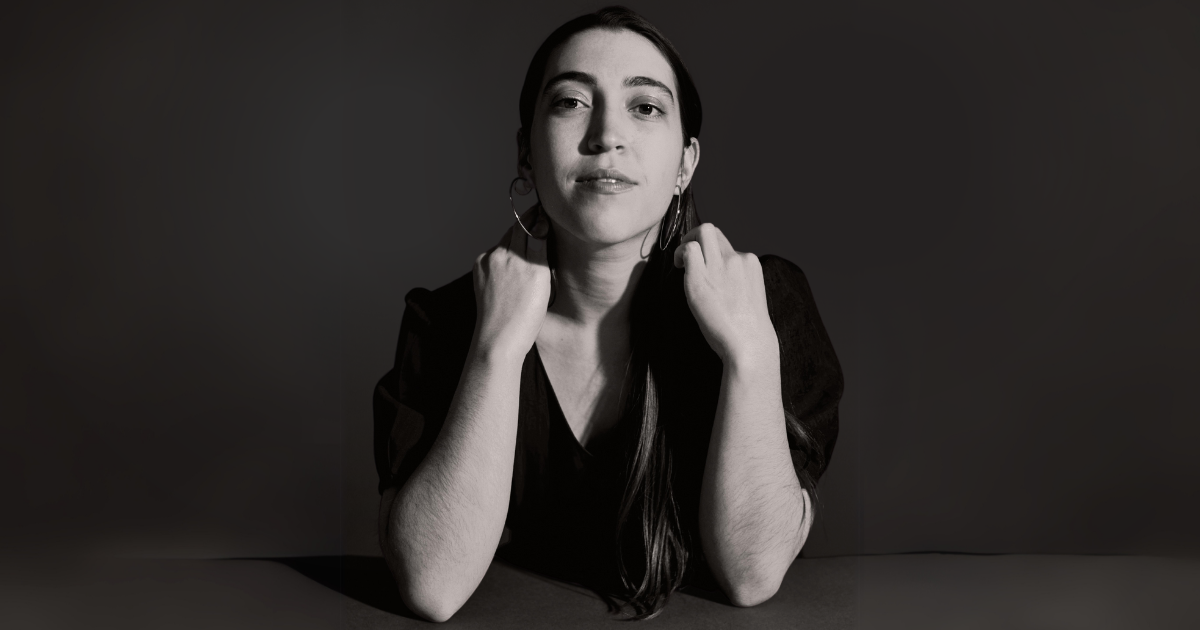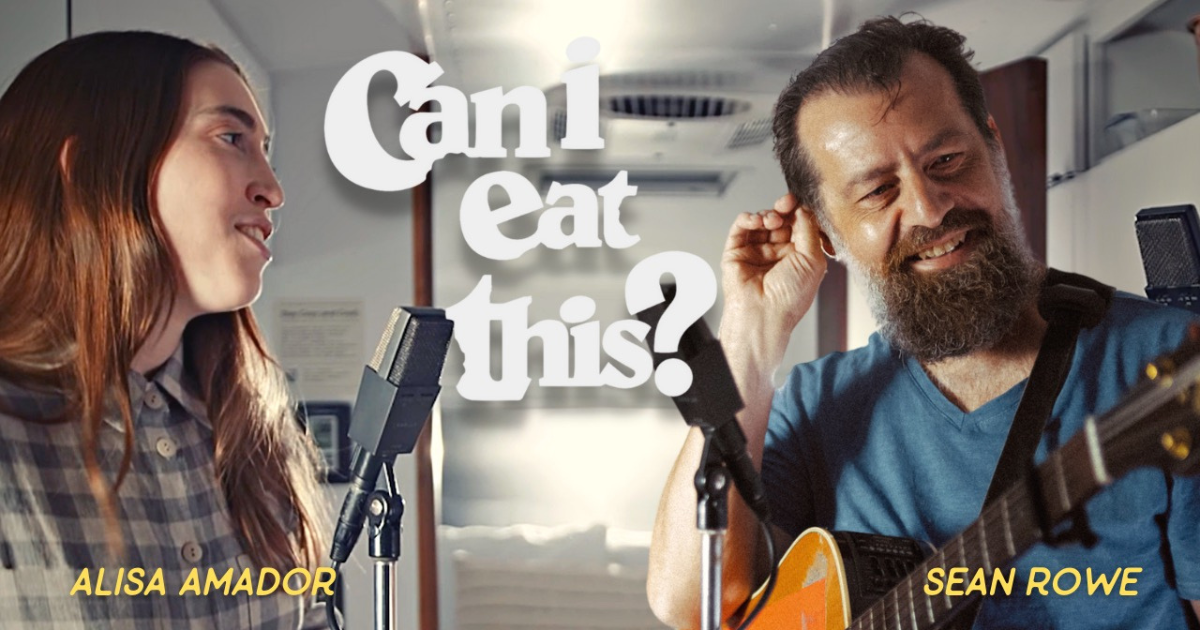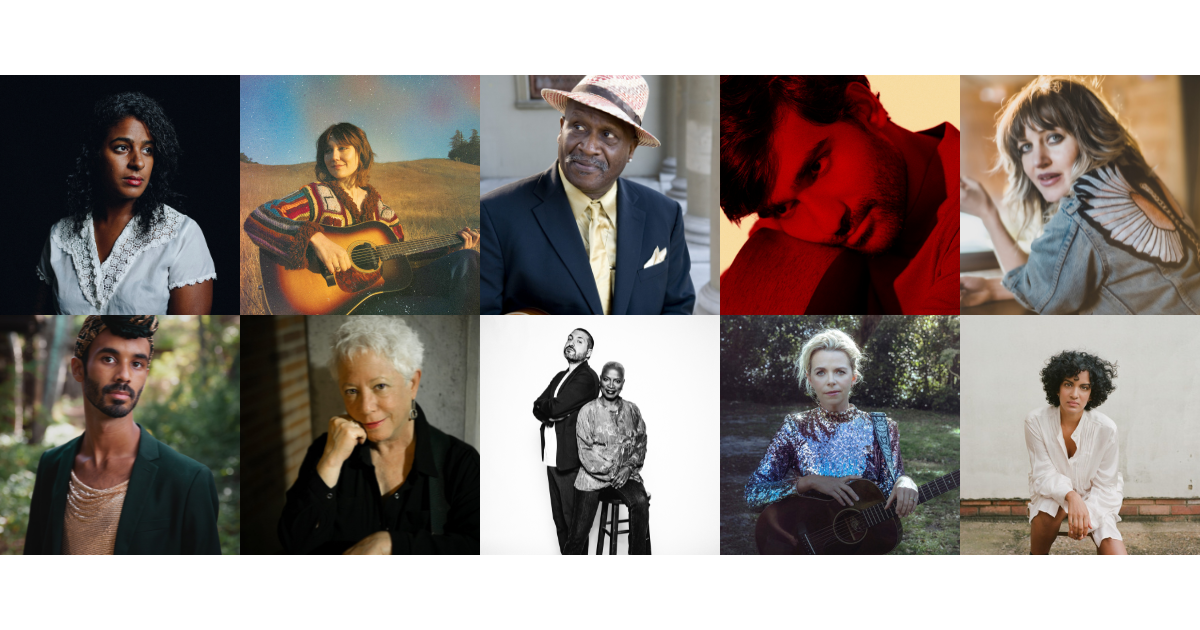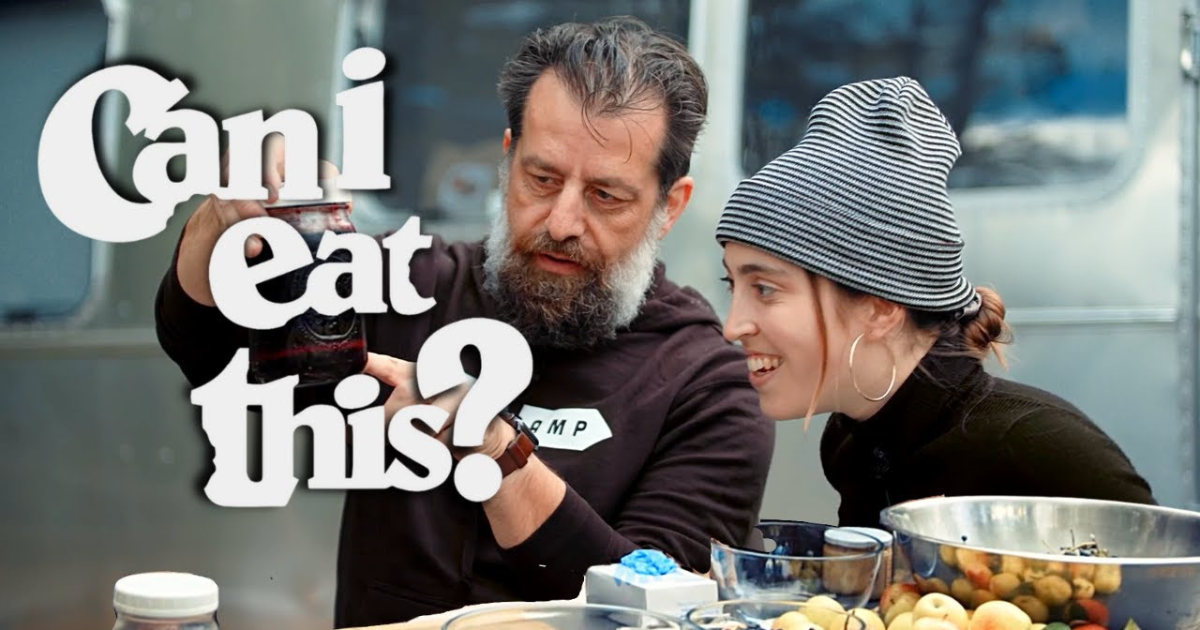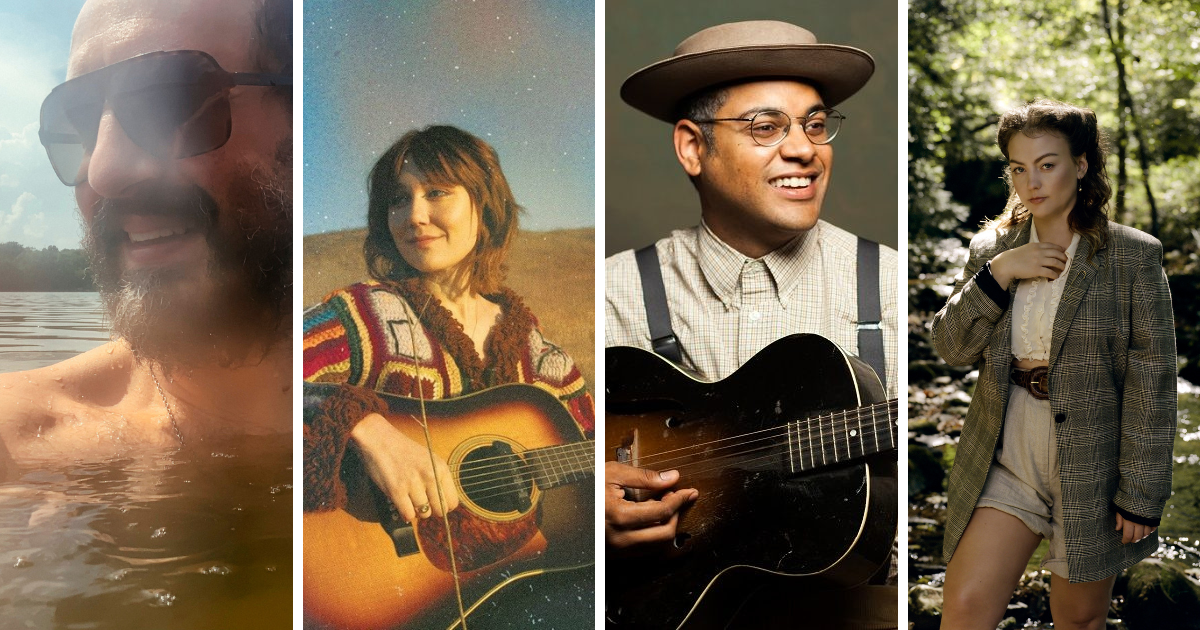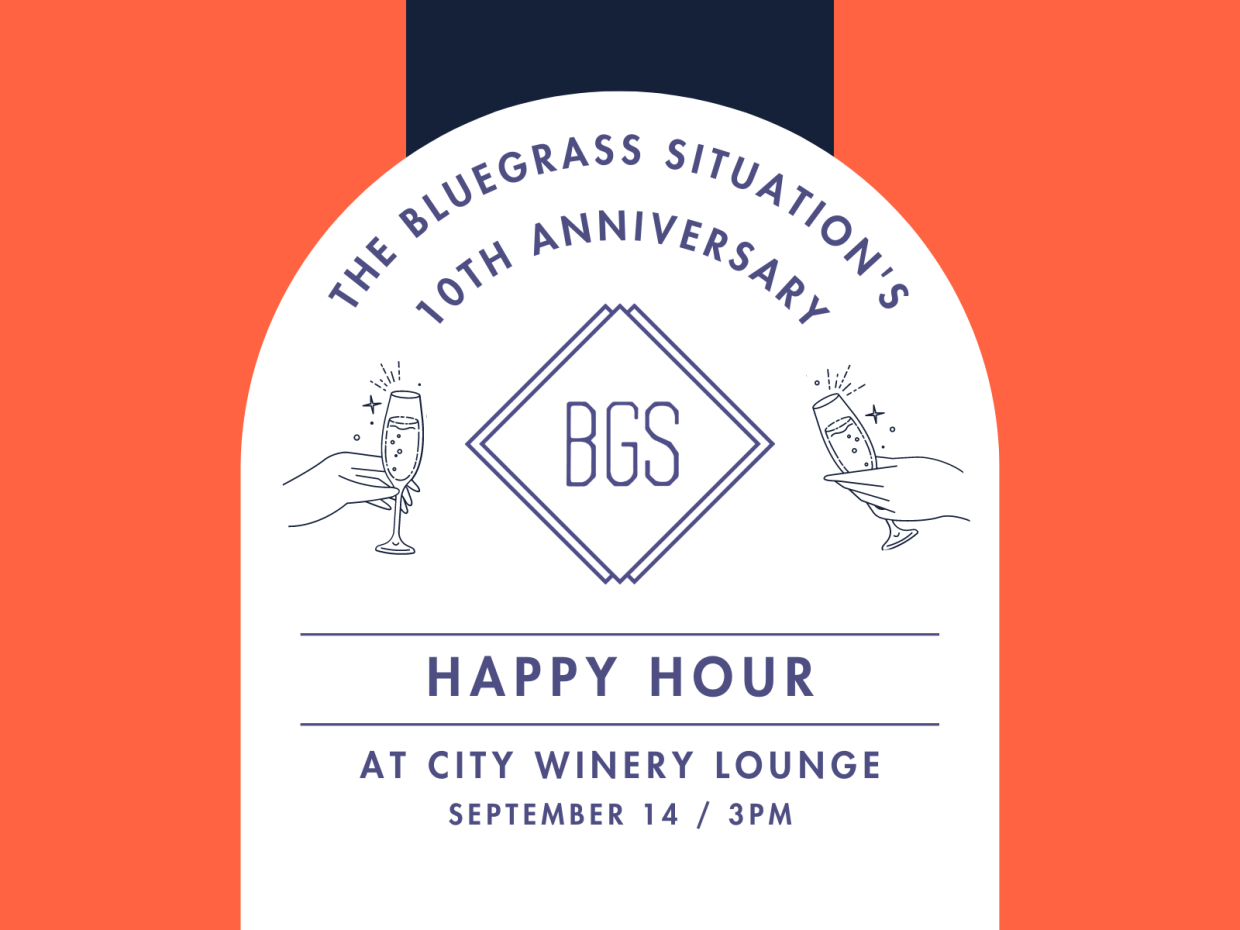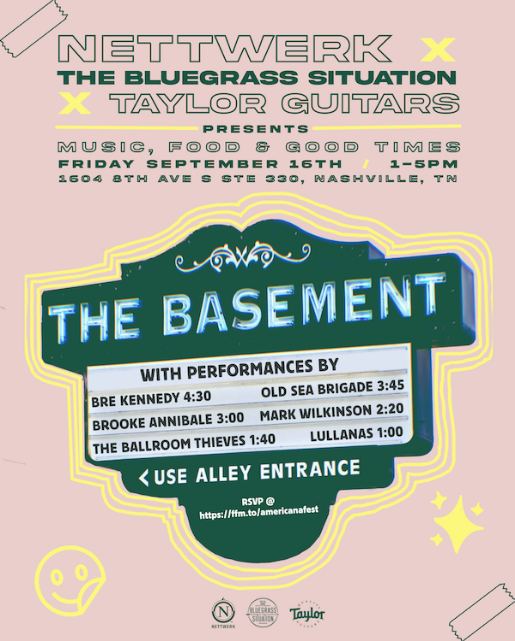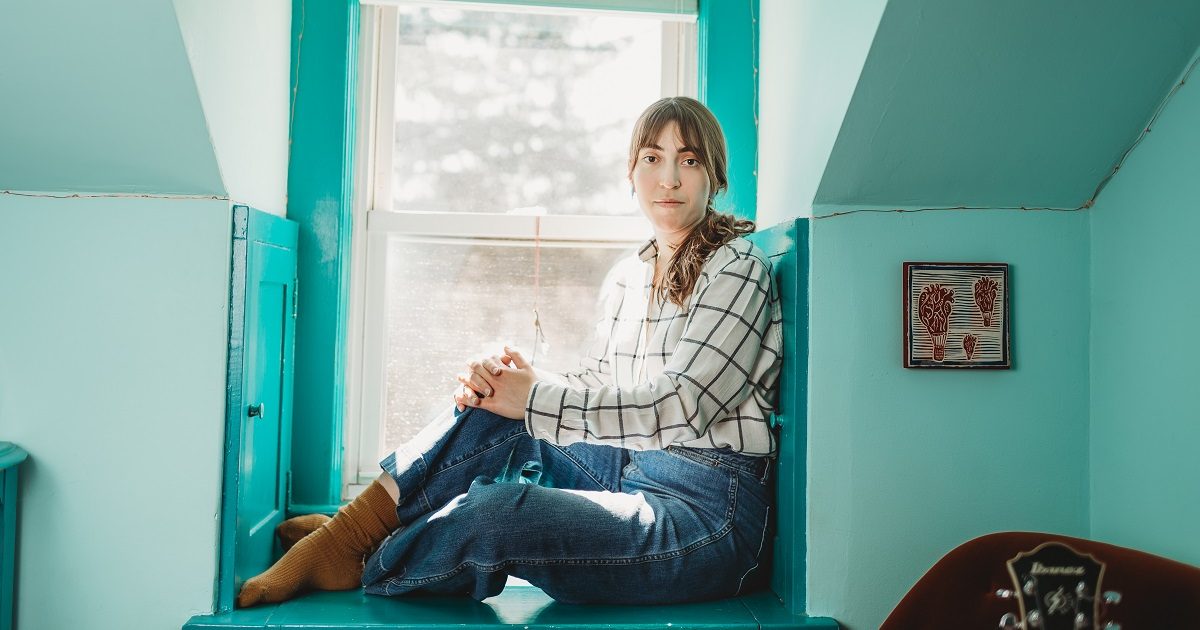After getting a preview of Alisa Amador’s new album, Multitudes, I was excited to catch up with her and hear more about it. The production and strings on songs like “Nudo de raíces” and “Extraño” reminded me of the work of Brazilian artist Tim Bernades, someone I have recently been addicted to. When I brought that up in our interview, Alisa got very excited and showed me a playlist she had made on which Bernardes was the first featured artist – as it happens, she is also a huge fan!
Thus, our conversation started off with a bang of enthusiasm for Bernardes’ Mil Cosas Invisíveis – while it turns out Amador’s Multitudes string parts had been recorded before she ever heard the Bernardes record – and we continued by talking about her life as the child of touring musicians, her guitar inspirations, and how she interacts with songwriting as a bilingual musician.
Multitudes is full of wide, spacious arrangements with lyrics that shoot straight to the point: “I love my life/ But I hate it sometimes,” she sings on “Love Hate Song.” On “Milonga Accidental” she sings, “Cuando miro el agua / Cuando miro el cielo / Cuando miro el agua otra vez…” Roughly translated, this means: “When I look at the water / When I look at the sky / When I look at the water, once again.”
Through our chat, I learned the reasoning behind these direct and simple lyrics – and how her reasoning differs depending on the language she’s working in. Amador is an artist that has found a rare confidence in the way she makes music. I couldn’t help but feel inspired by her calm demeanor and rooted presence. I soon learned that she had been on a long journey to reaching that place for herself.
I want to ask you about your time growing up playing with your parents, who are folk musicians in the band Sol y Canto – what did you take from those experiences and what did you want to do differently?
Alisa Amador: My parents are Latin folk musicians who are touring to this day. They are amazing, and I would not be the musician I am without that primary education. It’s interesting to think about what I’d want to do different, I am always wondering that without being conscious of it I think.
The big thing is just trying to take care of myself better. I think the culture of the music industry is that of completely running yourself into the ground and then some. It seems that being an artist and being a human are often at odds with each other…
I just witnessed my family work so hard, and not have a lot of breaks or self care or healing factored in, we were always [in] survival mode and worrying about money constantly. Although, at the time, that part didn’t traumatize me at all, I don’t know why.
As a kid we just had such a rich life; traveling everywhere, seeing live music, being around people who really care. Getting to experience that much art from such a young age, while really taking touring life in stride, it was a fantastic way to grow up. But I do look back and realize how exhausted and how stressed my parents were and I don’t want that for myself.
So is this something that you realized more recently? Given that as a kid you didn’t feel affected by it?
I think there was a moment – because what my bio says about winning NPR Tiny Desk contest, that just at the moment I was going to give up, that is really true. I was going through the logistics of leaving music, it was terrifying and really painful, but I was at a point in my career that I had done everything for everyone else and had no idea how to advocate for myself. It had ruined me; I was playing gigs where I didn’t feel safe and not being paid wages that were sustainable. … Consequently, I felt like a life in music was not feasible for me.
When I got that call that day from NPR, I almost told them to call someone else. Eventually I decided to say yes, but I had to treat that “yes” as a total reset, a complete reimagining, almost a starting over, and this time I had to take care of myself.
With this reset, did the actual music you were making change at all, or was it only your intentions with how it would be made?
I had been in a period of writers block for two years and I didn’t come out of that for another year after winning the Tiny Desk Contest. I felt like an imposter, I was like, “Little do these people know that I don’t write songs anymore…” But I chose to relearn how to write songs and to try to meet myself where I was, instead of trying to making something perfect or good.
I just had to remember, how did I start writing? I was 15 and struggling, I didn’t know how to coexist with painful things, and I started writing because it helped me get through it. I didn’t write because it needed to be good or I needed to sell it. At that time, I had all these other creative practices, [like] journaling and dancing around my room, and I had let go of all of them during that period, and I felt like I couldn’t make anything. I wasn’t ready to process what I had been through.
When I did starting writing again, it had to come from this place of childlike curiosity and wonder and I had to tell myself every time I wrote, “It will probably be bad.” And letting it be bad is what allowed me to write anything at all.
As a bilingual writer, you have access to another tool – choice of language – that many of us don’t have. How and why do you approach your songs in one language or the other, and how does it color them?
I heard Allison Russell talk about this in an interview. I’m paraphrasing, but I think she said something like, “Writing in different languages is like accessing different channels of the unconscious …” and similarly, I feel like I don’t make a conscious choice about what language I write in, but it could come from a different place.
I have noticed that writing in English, it tends to be more conversational. I just tell what I’m feeling, literally, and try to trust that the feelings will reach people, as long I’m being honest.
When I’m writing in Spanish, even though it’s my native language, I’ve always lived in the U.S., so I just have a limited vocabulary. There was a period of time where I was only speaking Spanish at home, it was the strict language at home, so I think it’s my childlike language, but it gets used in new and poetic ways. Whatever words can capture that feeling are the ones that I’m gonna stick to, because I don’t have that many to choose from! I don’t have trick phrases or literary devices, and maybe I have a little less judgement in Spanish as well. Limitation is really a gift in that way.
That’s really interesting! So with that in mind, how do you feel about language translation with songs? Is it helpful or harmful to the meaning?
I actually love translating and when the first album review came out from No Depression about Multitudes, the headline was “…Alisa Amador is Found in Translation.” I was so happy about that. Because really, my best language is Spanglish, switching in between is where I’m most comfortable, and that in-between-ness is where I’m always existing.
In my parent’s band, they would often give a translation of the song for an English speaking audience; my dad would play the progression of the song and my mom would stand there dramatically, looking fabulous, telling the lyrics in a beautiful way, always within the frame of the chord progression.
So I really enjoy giving a translation before singing the songs now as well, and so many people have come up to tell me they love it. The translation being in time with the song makes it possible for them to even follow along while I sing it in Spanish.
There’s something so metaphorically perfect about that, because when you’re living in between you feel like you’re always missing something, but there’s something gained from that, too, because it makes it possible to give grace when someone isn’t understanding, or bring them in when they aren’t feeling heard. And that is what I’m able to do when I give a translation.
Can you tell me about your guitar style? It’s really beautiful. Who or what influences the way you play? And how did you learn?
I started because I idolized my dad. He is a classical guitarist and he’s trained in flamenco. As a kid I studied flamenco dance, too, so I used to dance while he would play. He gave me one of his old foot stools and I played nylon-string guitar for a long time, that was my first instrument. I just studied folk songs like “Monster Mash” and “Blackbird” and “American Pie.” My dad was super technical, but I didn’t study with him, and I knew I wanted to become a better guitarist.
Then in college, I saw a musician just playing solo electric guitar and singing and I had no idea an electric could sound like that. I love electric – but nylon-string acoustic will always be the origin of my playing, so I approach the electric guitar that way. Resonance is really important to me and noticing how chords feel. A lot of my writing is just simple chords and adding and taking away notes. I’m very much still learning guitar, I’m in this stage of guitar learning where I get lost in self doubt, so I practice whatever I play live so much in order to feel confident performing.
I’m sure there’s a lot of Spanish language folk music that folks in the “Americana” scene are really missing out on, myself included. What are some other artists that sing in Spanish or in other languages, that you think folks should know about?
One of my big inspirations for the overall sonic work of Multitudes was the album Domus by Sílvia Pérez Cruz. I listened to it obsessively seven years ago without realizing it was the soundtrack of a film, Circa de Tu Casa, which is about the real housing crisis in Spain. [Pérez Cruz also stars in this film.]
Something I thought Cruz did so well on this record is that she is so feelings-oriented. What she feels is what dictates how she sings the song, which is a philosophy that I share. But she also has this riveting voice, so it’s all about telling a story. The production on the record completely holds what she’s singing, but it is also musically and technically beautiful. You want to have a record you can turn to again and again and notice new things to love.
Is there anything else you want readers to know before we end?
I guess I’d like to give a gentle reminder to human listeners, to the people listening and reading, that you really matter to independent artists. Every listener is the life force behind our careers. When someone comes to a show, and then comes back with a friend or presses play on a record they’ve not heard before, those things are what make my job possible, so thank you to the individuals of the world who press play and pay attention!
Photo Credit: Sasha Pedro

